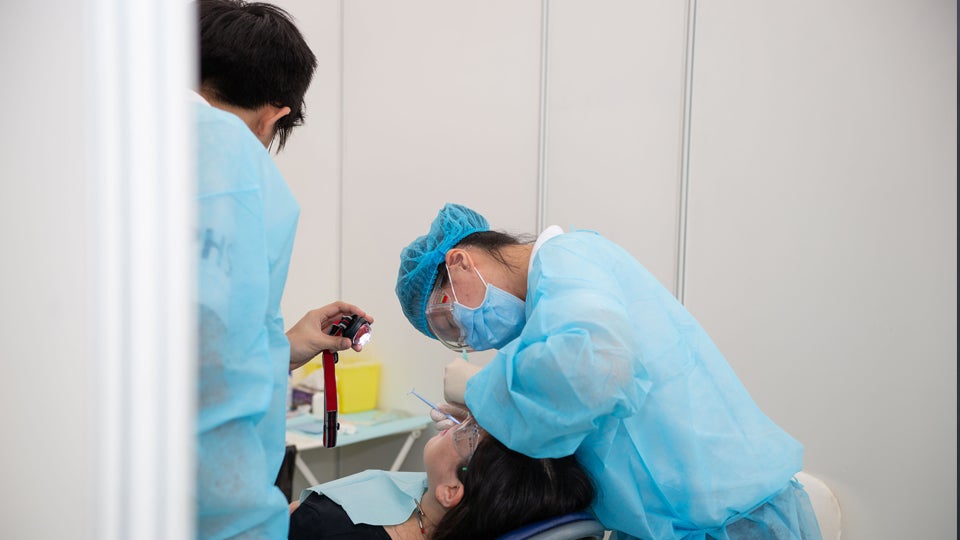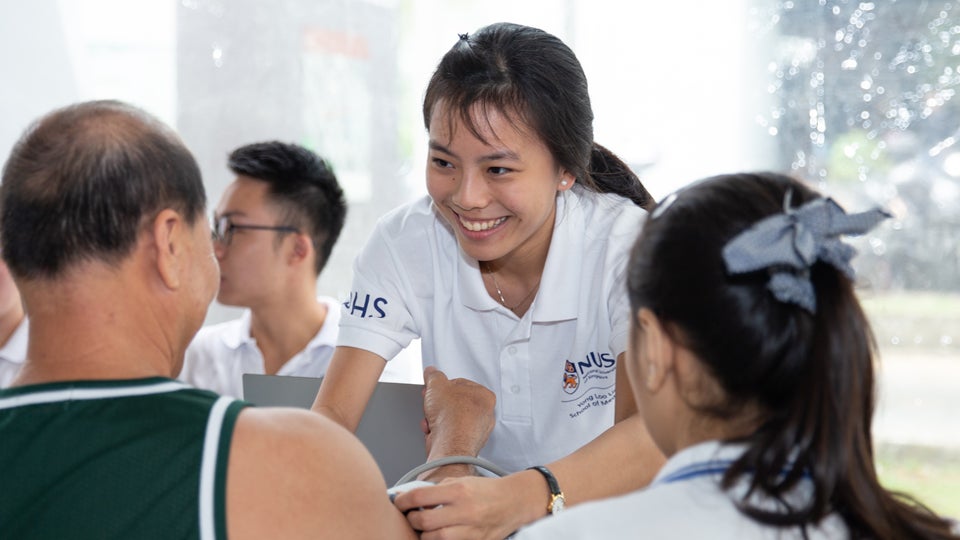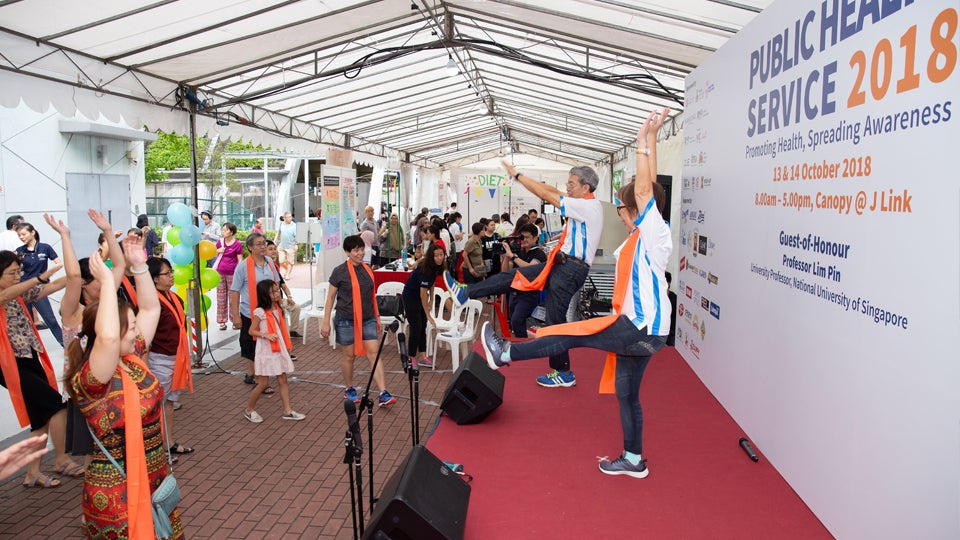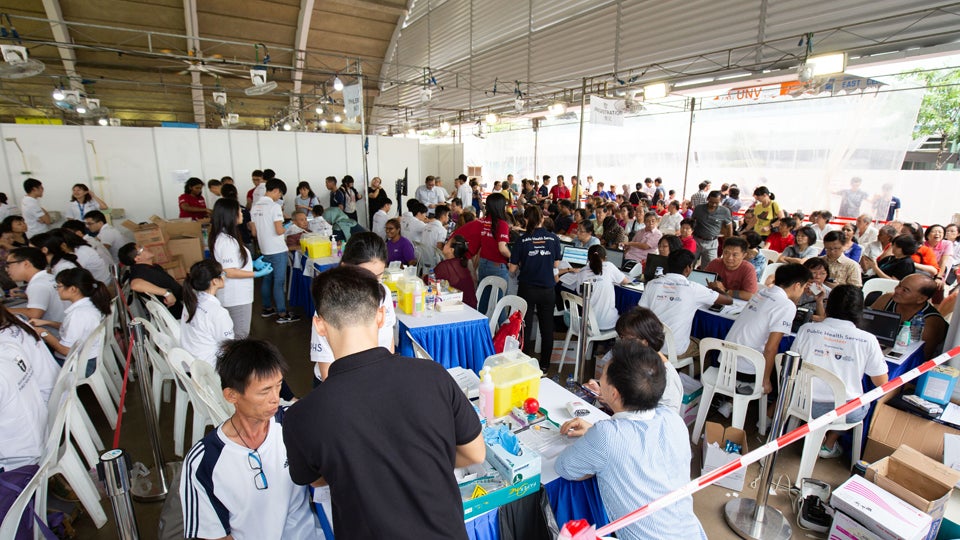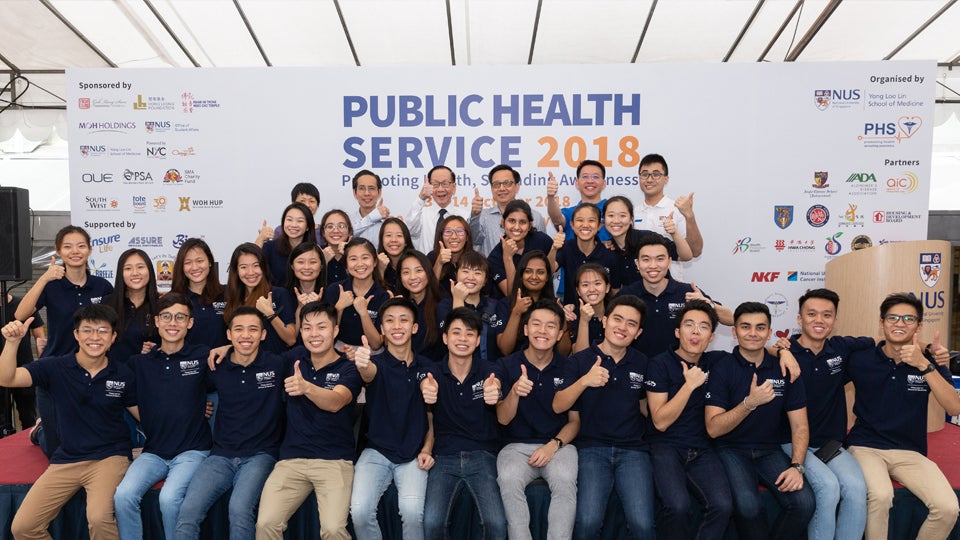Combined effort by healthcare students and professionals to screen and educate Jurong residents
Published: 13 Oct 2018
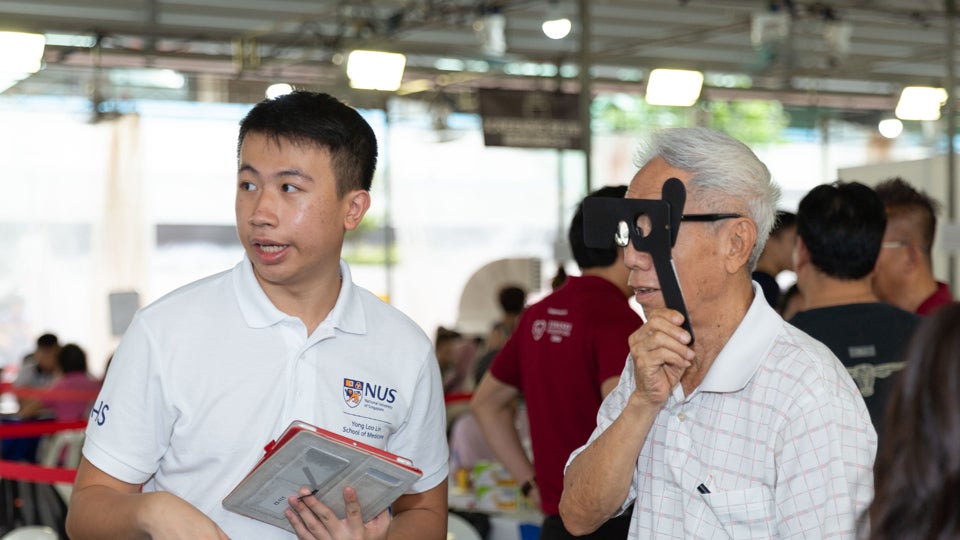
About 680 volunteers and staff from secondary and tertiary schools, hospitals and healthcare organisations in Singapore came together on 13 and 14 October to provide free comprehensive health screening and education for residents in Jurong. It is estimated that 1,500 Singaporeans and Permanent Residents aged 40 years old and above will be screened.
For the first time, Public Health Service (PHS) collaborated with Health Promotion Board (HPB) and Agency for Integrated Care (AIC) to provide the whole range of functional screening, comprising visual acuity screening, oral health screening and hearing screening for seniors aged 60 and above. Participants with abnormalities picked up for any of these screenings will be referred by HPB to relevant medical centres for further tests at subsidised rates. Other screenings include common chronic diseases such as cardiovascular diseases and various cancers.
Organised by students of NUS Yong Loo Lin School of Medicine (NUS Medicine) and involving students from the Alice Lee Centre for Nursing Studies, Pharmacy, Dentistry, Social Work, Nanyang Technological University’s Lee Kong Chian School of Medicine, Duke-NUS Medical School, Singapore Institute of Technology Physiotherapy students, Nanyang Polytechnic nursing students, as well as healthcare professionals from hospitals and staff from partner organisations, PHS aims to promote good community health through preventive measures, and spread awareness of the need and ways of looking after one’s health through education programmes.
Started with four screening components in 2004, PHS has since expanded its scope to include a wide range of screening modalities. Into its 13th year, the screening has benefited more than 18,000 residents in neighbourhoods such as Toa Payoh, Clementi and Jurong. It is now one of the biggest health screening events in Singapore. To remain inclusive for the disabled, PHS 2018 was sawheelchair-friendly, with volunteers on standby to provide assistance. Sign language interpretation services were also available for the hearing-impaired.
“PHS is an excellent student-led community health screening, education and service experiential learning initiative. I am glad to see strong inter-professional collaboration and learning among students from various healthcare professions during the planning and execution of the event. The greater emphasis on patient education and empowerment with the involvement of the Young Health Ambassadors’ Programme is also a strategic move, as prevention and early detection of chronic illness, coupled with good follow-up care and healthy lifestyle changes are the three keys to moving beyond healthcare to health,” said Associate Professor Lau Tang Ching, Vice-Dean for Education at NUS Medicine.
Prevention through health awareness and healthy diet
Stronger emphasis was placed on health education this year. PHS expanded its outreach to more than 30,000 households living in Yuhua, Jurong Central and Bukit Batok. Apart from publicising the annual screening event, the students conscientiously educated the public on metabolic syndrome and healthy living. PHS has mentored around 80 junior college and secondary school students under the Young Health Ambassadors’ Programme. These students were imparted skills to pass their knowledge on metabolic syndrome and healthy living to their families, friends and communities.
This year’s event also included an inaugural Health Carnival helmed by junior college and secondary school students. Interactive booths were set up for screening participants and general public to learn more about metabolic syndrome and healthy living. Health education was also incorporated into the screening journey via a screening passport that gave participants more information about the various screening modalities and educational posters throughout the screening flow.
“This year, PHS is increasing our focus on disease prevention in an effort to help our participants and the general public make simple lifestyle modifications to reduce their risk of chronic diseases. At the same time, we endeavour to develop students enrolled in our Young Health Ambassadors’ Programme into competent health ambassadors that will help to spread the message of healthy living at our health carnival and beyond even in their communities,” said Mr Ryan Lim, Director, Public Health Service 2018.
The Singapore Nutrition and Dietetics Association (SNDA) also joined in the screening this year. The Association’s dietitian staff was on hand to advise on healthy food choices and consumption, while doctors on-site referred participants who required follow-on consultation and treatment to polyclinics.
These efforts complemented the ongoing health campaigns spearheaded by various government agencies, such as the Ministry of Health’s War on Diabetes and HPB’s National Steps Challenge.
Stronger follow-ups for a sustainable impact on the community
In recent years, PHS has also strengthened its follow-up processes by working with primary care providers from the National University Health System’s partner clinics in the Jurong area to provide free first consultations to eligible participants with abnormal blood test and blood pressure results.
There was a robust follow-up process for participants with urinary incontinence – also a first in its 13 years of screenings. The Society for Continence Singapore had a booth at the exhibition manned by Nanyang Polytechnic nursing students and nurses from Singapore General Hospital (SGH) to educate the public on urinary and faecal incontinence. Screening particpants who required medical attention were referred to a physician for consultation.


